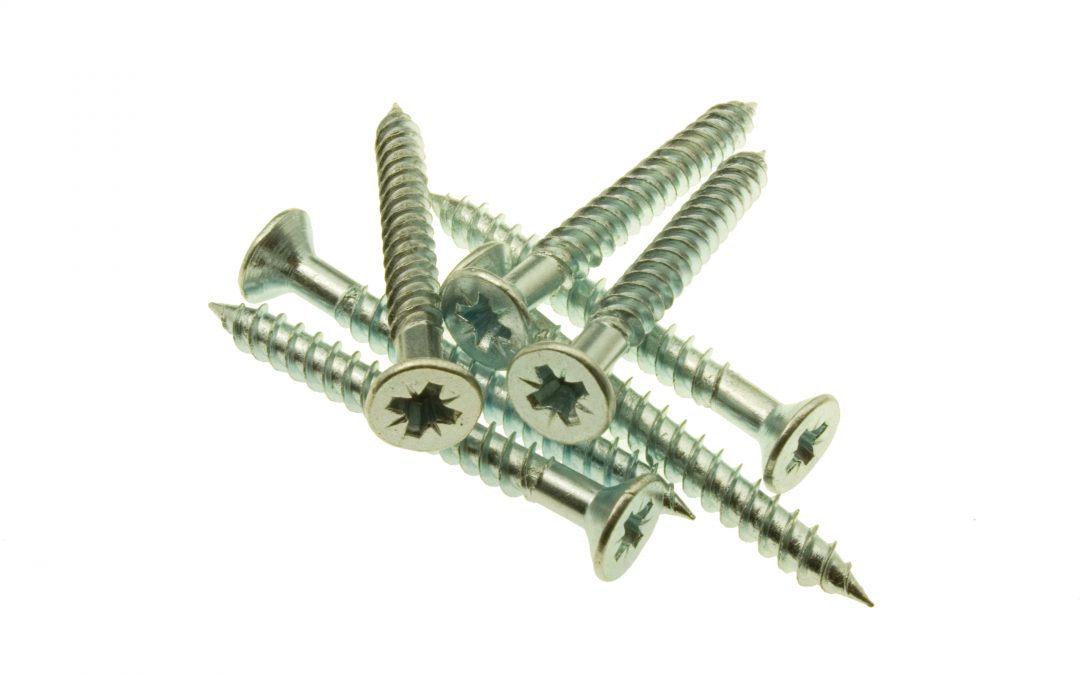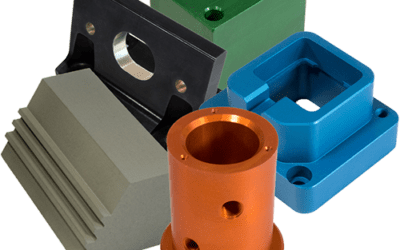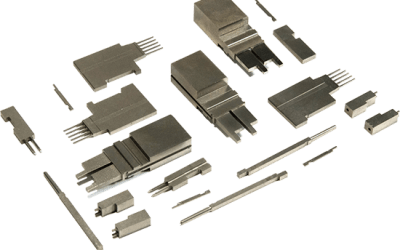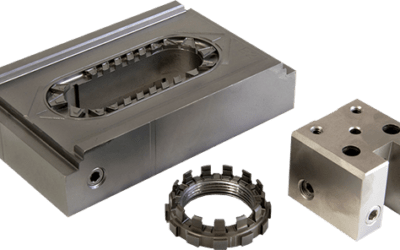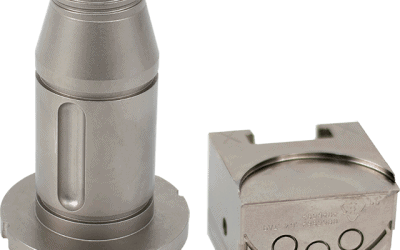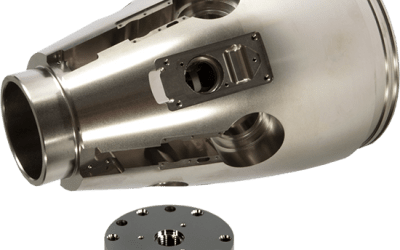Benefits of Electroless Nickel Plating on Precision CNC & Mold Components
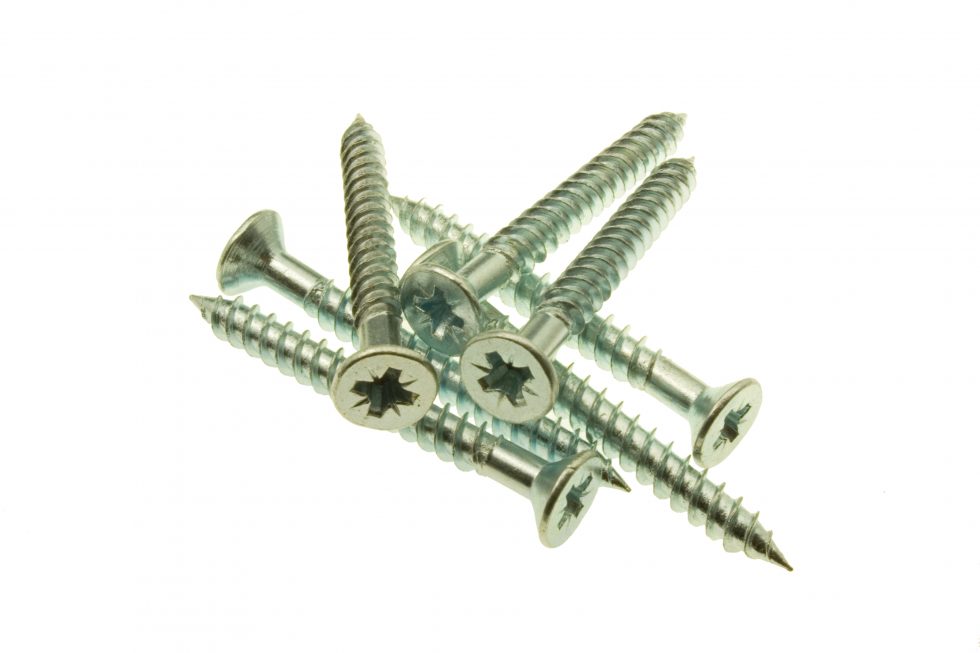
Progress for Industry, Inc. specializes in metal plating and finishing for the molding industry. With a variety of different metal finishes available to suit the specific applications and industries for which the final parts will be used. Electroless nickel plating, an anti-corrosion finish, is often applied to steel and aluminum components that are exposed to harsh environments.
Electroless nickel plating is used for a wide variety of applications, but is especially effective for precision CNC and mold components such as automotive parts and assembly equipment to ensure an even coating and a finer finish for small, threaded components. One of the advantages of electroless nickel plating is that it creates a surface finish with superior corrosion resistance. In addition to this, electroless nickel plating offers increased durability, ductility, and lubricity. Electroless nickel plating can be used for a multitude of applications across a wide range of industries, including aerospace, transportation, military, chemical, oil and gas, and electronics. Contact PFI today to learn how electroless nickel plating can benefit your precision parts and components.
The Electroless Nickel Plating Process
There are two primary types of nickel plating: electrolytic, and electroless nickel plating. Electroless nickel plating is a chemical reduction used to deposit a uniform layer of nickel metal on a substrate without the use of an electrical current. This is opposed to electrolytic nickel plating, which can result in excess material around the edges and corners of the material being plated. This makes electroless nickel plating an ideal process in applications where precision and protection from corrosion and wear are required. This caveat is often found in oilfield valve applications, drive shafts, and mechanical equipment.
Advantages of Electroless Nickel Plating
Electroless nickel plating is the ideal fastener material for the majority of outdoor and industrial applications, especially where lubricity and corrosion-resistance are both high priorities. It’s a ductile coating, so the material can be formed and bent after plating. There are six primary advantages of electroless nickel plating for precision CNC and mold components on a variety of metal substrates:
- Corrosion Resistance – The use of phosphorus in electroless nickel plating is key to increasing protection from corrosion, and specifically rust prevention.
- High-Temp Melting Range – Depending on the amount of phosphorus used in the compound, electroless nickel plated materials can improve in solderability or high-temperature resistance. This can be fit to your specific application and needs.
- Uniform Coating – The uniform coating provided by electroless nickel plating is particularly effective for complex parts that feature recesses, ridges, or grooves, as it is more difficult for them to meet precise specifications.
- Increased Durability, Ductility, and Lubricity – Parts coated with electroless nickel plating are less likely to crack or break under stress, and offer less friction against other materials overall.
- Improved hardness – Electroless nickel plating results in hard, wear and abrasion resistant surfaces, making it perfect for applications requiring finished durable products.
- More Versatile Plating – PFI is capable of plating electroless nickel as thin as 0.000025″ and as thick as .020″. This is beneficial for numerous commonplace applications (including CNC machining) within the injection mold industry, the military, and anywhere precision counts.
Effects of Electroless Nickel Plating on Fasteners and Small Components
Industrial fasteners are ubiquitous. They can be found everywhere: infrastructure; homes and workplaces; schools, hospitals, and churches; machinery; transportation equipment; and the list goes on. Although they are small, it is fair to say that these fasteners hold the world together. Failure of these components is simply not an option.
Electroless nickel plating is an integral and critical part of fastener manufacturing. It significantly boosts the performance of fasteners, screws, bolts, nuts, and countless other precision components. The advantages of electroless nickel plating outlined above contribute to an overall effect of making components that are reliable and long-lasting. Various industries adopt different standards and requirements to ensure the safety and effectiveness of their products. While no coating entirely eliminates corrosion, electroless nickel plating significantly prolongs the life cycle of small parts and components while ensuring both integrity and safety and making sure all specifications and standards are met or exceeded.
Electroless Nickel Plating For Precision CNC & Mold Components
PFI is a recognized leader in plating and coating services, including electroless nickel and zinc plating. Known for superior plating across the molding industry, PFI has more than 30 years’ experience servicing industries across the US and internationally. In addition to electroless nickel coating, they have expertise in Dura Slick, lubricoat, hardcoat anodize platings, nickel boron nitride coatings, and zinc plating.
PFI’s electroless nickel plating enhances the performance of automotive equipment, assembly equipment, and countless other precision components. It is hard, durable, and provides excellent corrosion-resistance. The components we commonly coat with electroless nickel can be found in aerospace and automotive products, electronics, and beyond. Contact us today to learn more about how electroless nickel plating can benefit your precision CNC and mold components.
